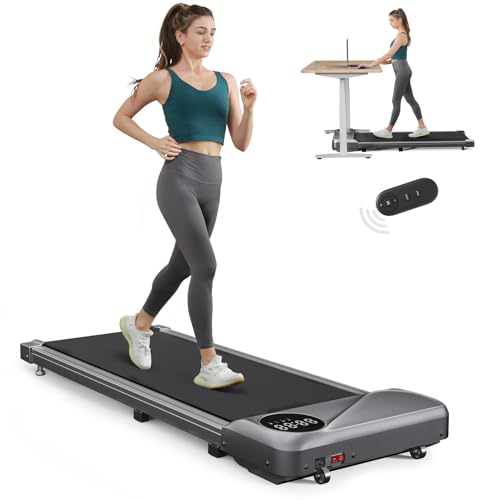Is Treadmill The Best There Ever Was?
The Comprehensive Guide to Home Treadmills: Everything You Need to Know
With an increasing concentrate on physical fitness and health in today's hectic world, home treadmills have emerged as a popular choice for those wanting to instill regular exercise into their routines. Whether for visual improvement, benefit, or physical fitness tracking, treadmills provide a versatile solution for numerous fitness enthusiasts.
This short article explores different elements of home treadmills, supplying insights into their features, advantages, and important factors to consider for possible buyers. It also addresses typical concerns and misunderstandings about these exercise machines.
Table of Contents
- What is a Home Treadmill?
- Advantages of Having a Home Treadmill
- Types of Home Treadmills
- Key Features to Consider
- Upkeep Tips for Your Treadmill
- Frequently Asked Questions about Home Treadmills
- Conclusion
What is a Home Treadmill?
A home treadmill is a fitness device designed for running or walking while remaining in one location. Unlike traditional running outside, it enables individuals to exercise in the comfort of their homes. Treadmills can be powered by electrical power or can be manual, requiring the user to move the belt with their own effort.
Benefits of Having a Home Treadmill
The advantages of owning a home treadmill are many. Below are some essential advantages:
- Convenience: Users can exercise at any time, avoiding weather constraints or gym schedules.
- Time Management: Reduced travel time to and from a gym, permitting quicker workouts.
- Privacy: The convenience of working out in an individual environment, suitable for those who feel uneasy in public settings.
- Flexibility: Adjustable speeds and inclines offer differed workout choices, accommodating various physical fitness levels.
- Integration with Technology: Many modern-day treadmills come geared up with physical fitness apps and tracking systems that monitor progress.
Kinds Of Home Treadmills
Home treadmills can be categorized into numerous types, each serving various needs and choices:
Type
Description
Motorized Treadmills
Electric motors that enable users to change speed and incline with push-button controls.
Handbook Treadmills
Needs physical effort to move the belt, generally more compact and portable.
Folding Treadmills
Space-saving designs that can be folded when not in usage.
Treadmill Desks
Permit users to walk while working, integrating physical fitness into their daily tasks.
Choosing the Right Treadmill
Consider these aspects when selecting the suitable kind of treadmill for personal use:
- Space Requirements: Ensure the treadmill fits comfortably in your designated workout location.
- Speak with Reviews: Look at user feedback and professional evaluations to comprehend performance and dependability.
- Budget: Set a clear budget plan, as prices can vary extensively.
- Usage Frequency: Assess how frequently the treadmill will be utilized to identify sturdiness and functions required.
Key Features to Consider
When looking for a home treadmill, it's essential to examine specific functions that improve the exercise experience. Specific features to prioritize include:
- Motor Power: Look for a motor with a minimum of 2.0 CHP for trusted efficiency.
- Running Surface: A bigger running surface area is more effective, especially for those who desire to sprint or take longer strides.
- Incline Options: Adjustable inclines increase workout intensity and help engage various muscle groups.
- Cushioning System: Good shock absorption can considerably decrease the influence on joints and avoid injuries.
- Technology Integration: Built-in heart rate screens, Bluetooth connection, and integrated workout programs can enhance your fitness journey.
Upkeep Tips for Your Treadmill
A well-maintained treadmill can last for years. Routine upkeep is crucial to guaranteeing ideal performance. Consider these maintenance pointers:
- Keep It Clean: Wipe down the surface area regularly to eliminate dust and sweat.
- Oil the Belt: Apply silicone lubricant according to producer standards to minimize friction.
- Look for Wear and Tear: Regularly check the belt and deck for signs of damage or extreme wear.
- Inspect the Motor: Clean dust from the motor location and make sure correct ventilation to avoid getting too hot.
- Follow User Manual: Always refer to the user manual for particular upkeep directions related to the model.
FAQs about Home Treadmills
1. Are home treadmills efficient for weight reduction?
Yes, home treadmills can be very reliable for weight reduction if used consistently as part of a well balanced diet and fitness routines.
2. Just how much space do I need for a treadmill?
While it differs by model, a normal home treadmill will require at least 6.5 feet in length and 3 feet in width.
3. Do try here need special shoes to use a treadmill?
While unique shoes aren't necessary, purchasing good quality running shoes can help avoid injuries and boost comfort.
4. Can I view TV or listen to music while utilizing a treadmill?
Absolutely! Most contemporary treadmills have features that permit users to see television or listen to music through integrated speakers or via Bluetooth connections.
5. The length of time should I utilize a treadmill every day?
For optimum health advantages, goal for a minimum of thirty minutes of moderate-intensity workout on the treadmill most days of the week.
Owning a home treadmill unlocks to hassle-free and flexible exercises suitable for people of all skill levels. Comprehending the various types, important functions, and proper upkeep can help ensure that your financial investment remains reliable and enjoyable. As physical fitness ends up being a priority for numerous, home treadmills provide an exceptional chance for individual health and wellness, making it much easier than ever to incorporate workout into life.
With the right resources and assistance, a home treadmill can end up being a vital part of one's fitness journey, helping individuals achieve their objectives in a sustainable manner.
